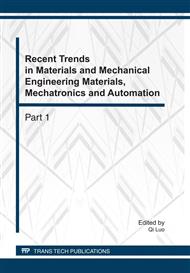p.747
p.753
p.758
p.762
p.767
p.773
p.780
p.785
p.789
An Analysis of Verb Phase Based on Concept Model for Nature Language Understanding
Abstract:
The traditional intelligent tutoring system as a web-based education tools used for adaptive learning can’t solve the encountered question in time while the student is learning with the absence of nature language understanding system. In this paper, a web-based intelligent tutoring system is firstly introduced to solve the encountered question in real time. Secondly, a concept model representing the concept connotation, the extension and the relation between them is presented to support the nature language understanding system in order to extract the question’s meaning. Furthermore, a knowledge representation of verb and noun in impersonal mature domain is involved. Thirdly, the semantic processing arithmetic of the verb phase is given. Finally, the result of experiment and application of arithmetic are shown.
Info:
Periodical:
Pages:
767-772
DOI:
Citation:
Online since:
May 2011
Authors:
Price:
Сopyright:
© 2011 Trans Tech Publications Ltd. All Rights Reserved
Share:
Citation:


